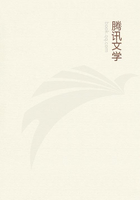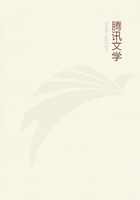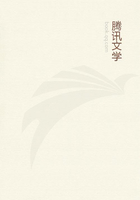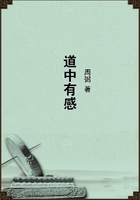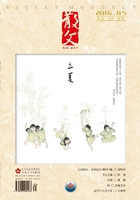But precisely therein lay the true significance and the revolutionary character of the Hegelian philosophy (to which, as the close of the whole movement since Kant, we must here confine ourselves), that it once and for all dealt the death blow to the finality of all product of human thought and action. Truth, the cognition of which is the business of philosophy, was in the hands of Hegel no longer an aggregate of finished dogmatic statements, which, once discovered, had merely to be learned by heart. Truth lay now in the process of cognition itself, in the long historical development of science, which mounts from lower to ever higher levels of knowledge without ever reaching, by discovering so-called absolute truth, a point at which it can proceed no further, where it would have nothing more to do than to fold its hands and gaze with wonder at the absolute truth to which it had attained. And what holds good for the realm of philosophical knowledge holds good also for that of every other kind of knowledge and also for practical action. Just as knowledge is unable to reach a complete conclusion in a perfect, ideal condition of humanity, so is history unable to do so; a perfect society, a perfect "state", are things which can only exist in imagination. On the contrary, all successive historical systems are only transitory stages in the endless course of development of human society from the lower to the higher. Each stage is necessary, and therefore justified for the time and conditions to which it owes its origin. But in the face of new, higher conditions which gradually develop in its own womb, it loses vitality and justification. It must give way to a higher stage which will also in its turn decay and perish. Just as the bourgeoisie by large-scale industry, competition, and the world market dissolves in practice all stable time-honored institutions, so this dialectical philosophy dissolves all conceptions of final, absolute truth and of absolute states of humanity corresponding to it. For it [dialectical philosophy], nothing is final, absolute, sacred. It reveals the transitory character of everything and in everything; nothing can endure before it except the uninterrupted process of becoming and of passing away, of endless ascendancy from the lower to the higher. And dialectical philosophy itself is nothing more than the mere reflection of this process in the thinking brain. It has, of course, also a conservative side; it recognizes that definite stages of knowledge and society are justified for their time and circumstances; but only so far. The conservatism of this mode of outlook is relative; its revolutionary character is absolute -- the only absolute dialectical philosophy admits.
It is not necessary, here, to go into the question of whether this mode of outlook is thoroughly in accord with the present state of natural science, which predicts a possible end even for the Earth, and for its habitability a fairly certain one; which therefore recognizes that for the history of mankind, too, there is not only an ascending but also a descending branch. At any rate, we still find ourselves a considerable distance from the turning-point at which the historical course of society becomes one of descent, and we cannot expect Hegelian philosophy to be concerned with a subject which natural science, in its time, had not at all placed upon the agenda as yet.
But what must, in fact, be said here is this: that in Hegel the views developed above are not so sharply delineated. They are a necessary conclusion from his method, but one which he himself never drew with such explicitness. And this, indeed, for the simple reason that he was compelled to make a system and, in accordance with traditional requirements, a system of philosophy must conclude with some sort of absolute truth. Therefore, however much Hegel, especially in his Logic, emphasized that this eternal truth is nothing but the logical, or, the historical, process itself, he nevertheless finds himself compelled to supply this process with an end, just because he has to bring his system to a termination at some point or other. In his Logic, he can make this end a beginning again, since here the point of the conclusion, the absolute idea -- which is only absolute insofar as he has absolutely nothing to say about it -- "alienates", that is, transforms, itself into nature and comes to itself again later in the mind, that is, in thought and in history. But at the end of the whole philosophy, a similar return to the beginning is possible only in one way. Namely, by conceiving of the end of history as follows: mankind arrives at the cognition of the self-same absolute idea, and declares that this cognition of the absolute idea is reached in Hegelian philosophy.
In this way, however, the whole dogmatic content of the Hegelian system is declared to be absolute truth, in contradiction to his dialectical method, which dissolves all dogmatism. Thus the revolutionary side is smothered beneath the overgrowth of the conservative side. And what applies to philosophical cognition applies also to historical practice. Mankind, which, in the person of Hegel, has reached the point of working out the absolute idea, must also in practice have gotten so far that it can carry out this absolute idea in reality. Hence the practical political demands of the absolute idea on contemporaries may not be stretched too far. And so we find at the conclusion of the Philosophy of Right that the absolute idea is to be realized in that monarchy based on social estates which Frederick William III so persistently but vainly promised to his subjects, that is, in a limited, moderate, indirect rule of the possessing classes suited to the petty-bourgeois German conditions of that time; and, moreover, the necessity of the nobility is demonstrated to us in a speculative fashion.

